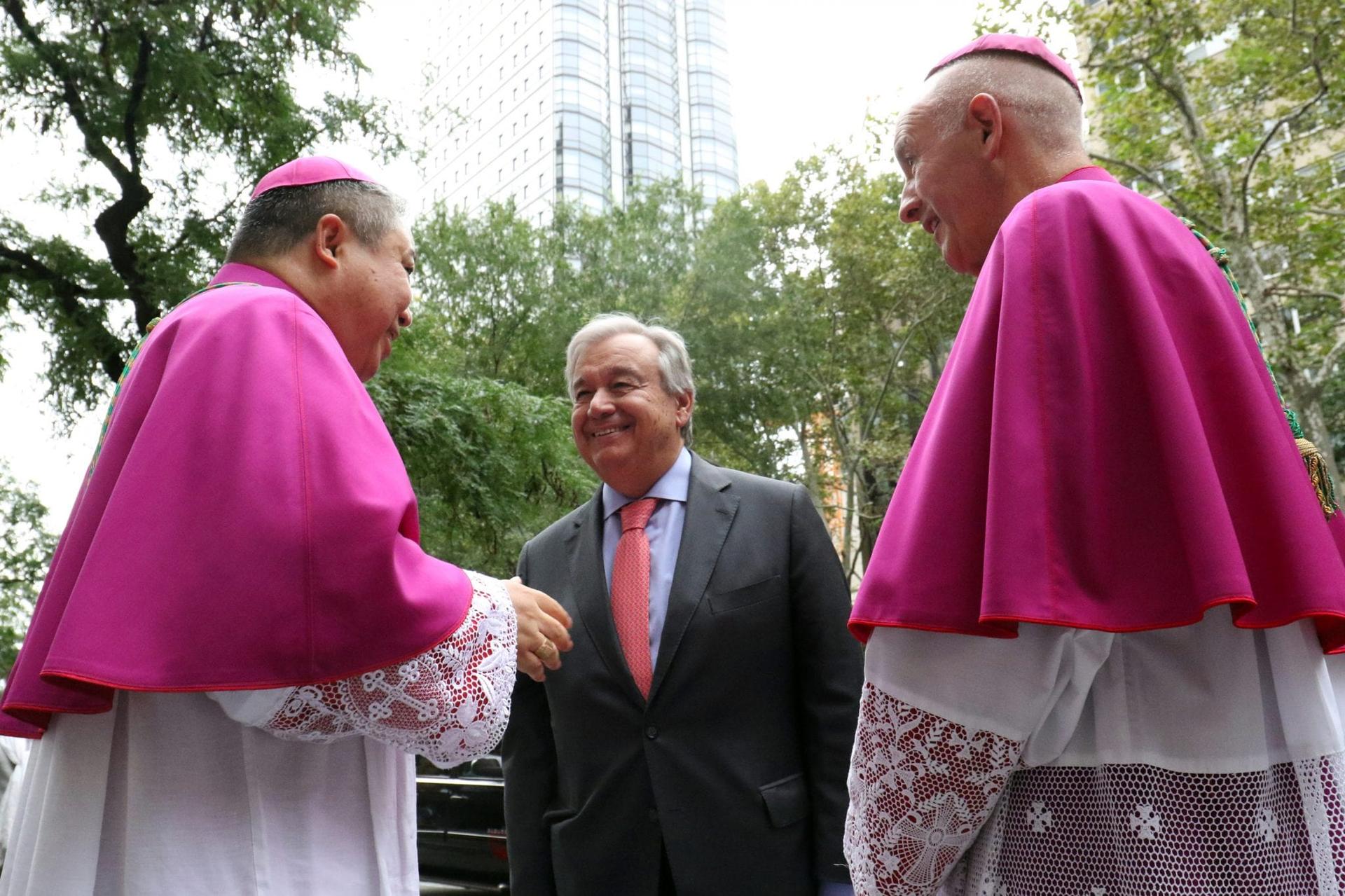NEW YORK — One year after Pope Francis’ visit to Colombia, where he urged forgiveness and reconciliation in a nation seeking to end its 50-year civil war, U.N. delegates attending an annual prayer vigil for the opening of the General Assembly were reminded that peace, while challenging, is achievable.
“Real peace cannot be imposed by force,” Archbishop Luis Castro Quiroga told attendees Monday evening. “Peace begins to come alive and to take shape at the negotiating table with a sincere and truthful dialogue.”
Castro Quiroga leads the archdiocese of Tunja, Colombia, and as former head of the nation’s bishops’ conference, he spoke with firsthand experience from his work on the Colombia peace deal, which was signed in 2016 between the government and the armed guerilla forces with critical support of the local Church.
He delivered a meditation for the prayer service, which took place at the Church of the Holy Family, known as the U.N. parish, where he told the nearly 70 diplomats and over 50 religious leaders that the international community’s work in both peacemaking and peacebuilding has spiritual foundations.
“Above all, peace is a blessing from God, a gift and not an imposition,” he said. “God offers this blessing of peace and He wants us to receive it.”
“Peace is not passive but dynamic,” Castro Quiroga maintained. “Peace expresses itself in defense of the life of the more vulnerable. It may be the poor, the sinner, the sick, the victims of violence, or children. This defense is a revolt against selfishness, greed, injustice or against anything that may harm human beings.”
He noted that during Pope Francis’ visit to Colombia, he used the word “peace” some 42 times.
The pope’s spirit loomed large over the prayer service as attendees recited his Prayer for the Earth from his 2015 encyclical on care for creation, Laudato si’, along with his Prayer for Refugees and Migrants from his April 2016 visit to Lesbos, Greece.
Also in attendance was U.N. Secretary-General António Guterres who said the annual prayer service was both a bridge between each session of the General Assembly, but also a bridge between people of diverse backgrounds — “people of different faiths, nationalities, and traditions united in a common cause.”
While Guterres acknowledged that global conflict often seems “intractable,” he said the presence of Castro Quiroga was “a powerful message…that peace is possible, that war is not inevitable.”
He urged the delegates to turn their prayers into deeds in the year ahead.
Guterres, who is a Portuguese Catholic, was elected in January 2017 and has attended the Holy See’s Mission to the U.N.’s prayer service for the past two years.
María Fernanda Espinosa Garcés of Ecuador, who is the president of the 73rd session of the General Assembly, also addressed the gathering, using her time at the dais to call special attention to the plight of the millions of migrants and refugees around the globe.
“Humanity has been on the move since the dawn of times, bringing with it a richness and diversity. But the movement of people that comes about as a result of suffering and violence has to be addressed,” she said.
“We should see it for what it is; as a symptom of our collective responsibility to find the lasting solutions that prevent conflict,” she continued.
RELATED: Vatican lauded for its role in UN deal on migration
Garcés also highlighted the recently finalized Global Compact for Safe, Orderly and Regular Migration, in which the Holy See was instrumental to helping countries around the world find agreement on one of the most politically charged issues around the world.
Closing out the service, papal envoy to the U.N., Archbishop Bernadito Auza, prayed for wisdom, prudence, and courage to tackle the daunting tasks facing the international community in the year ahead.
“Help us to accomplish what we have not yet been able to do on our own so that we might be your instruments to bring about a world of peace, justice, and fraternal welcome,” he prayed, “where no one is left behind, everyone’s dignity and rights respected and protected, and peoples’ integral human development advanced and achieved.”
















